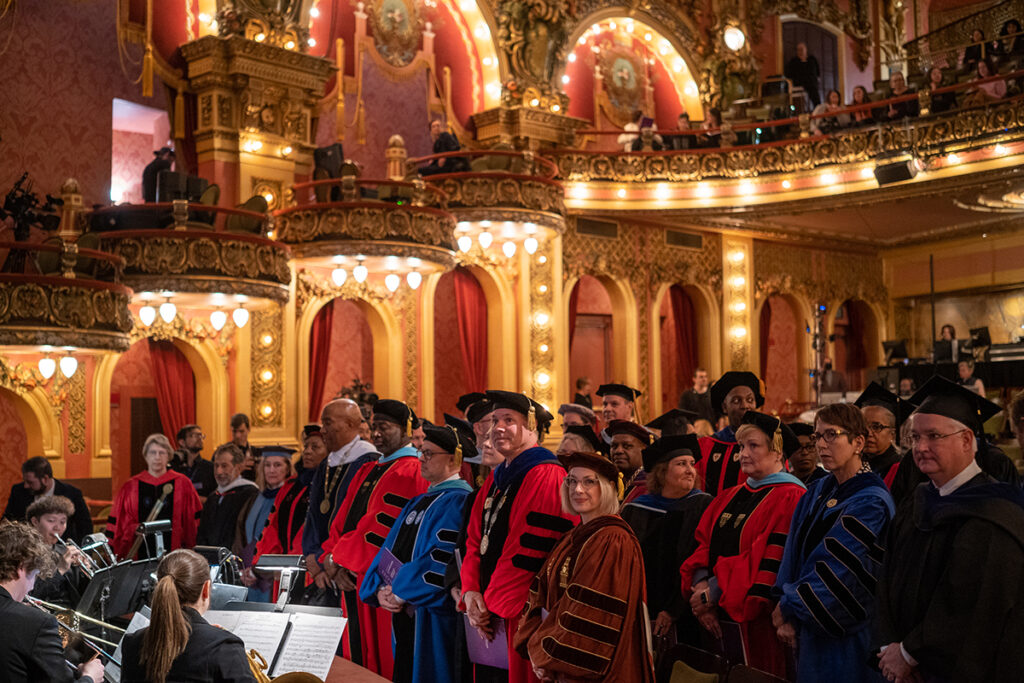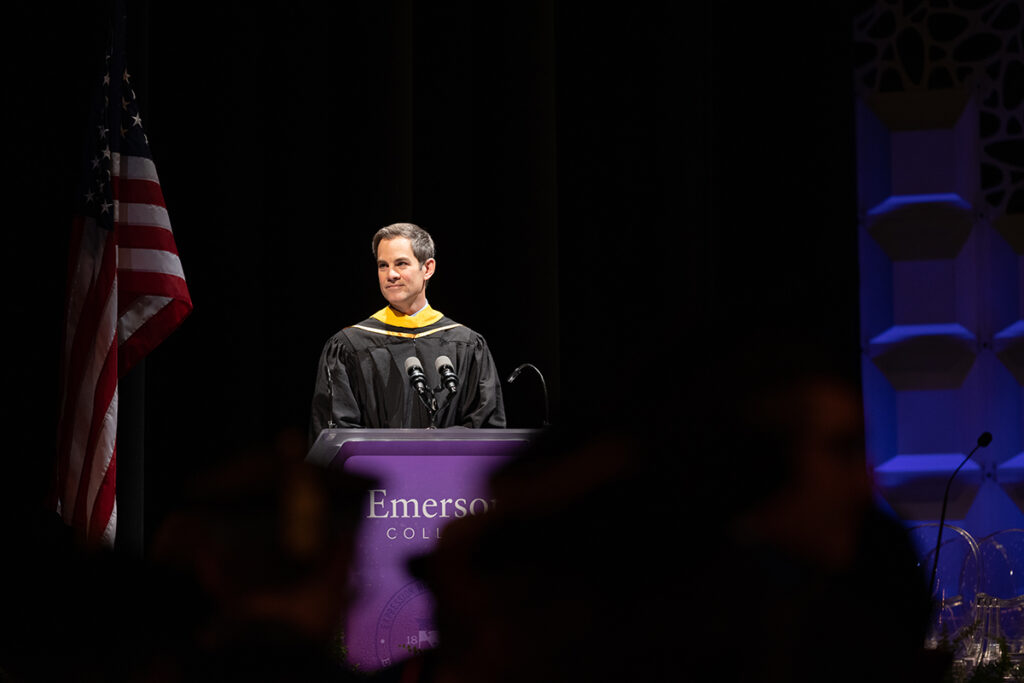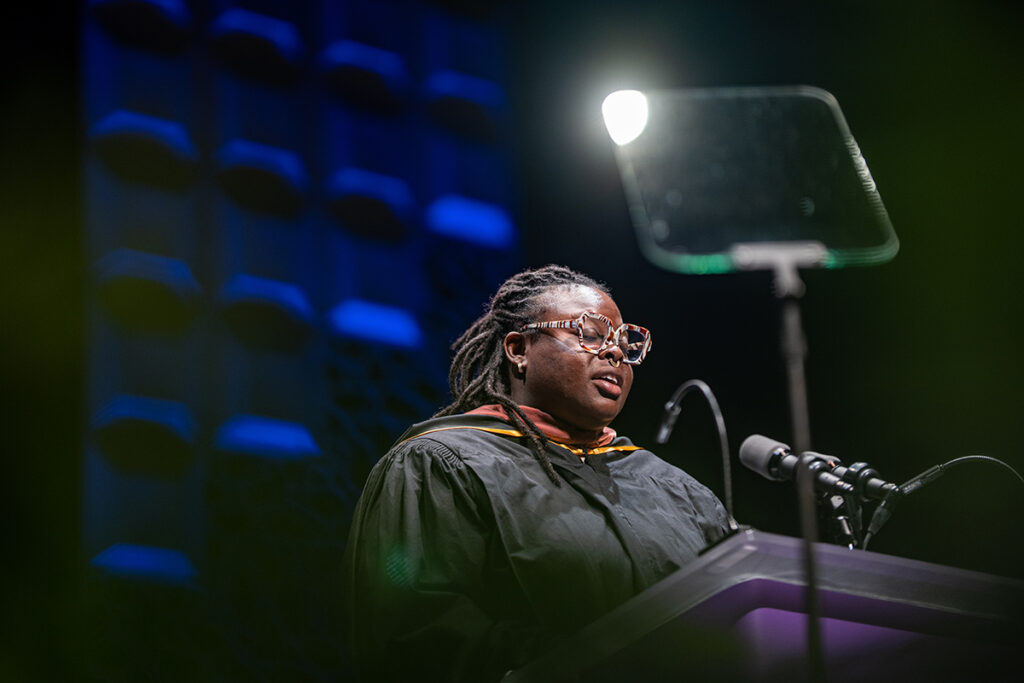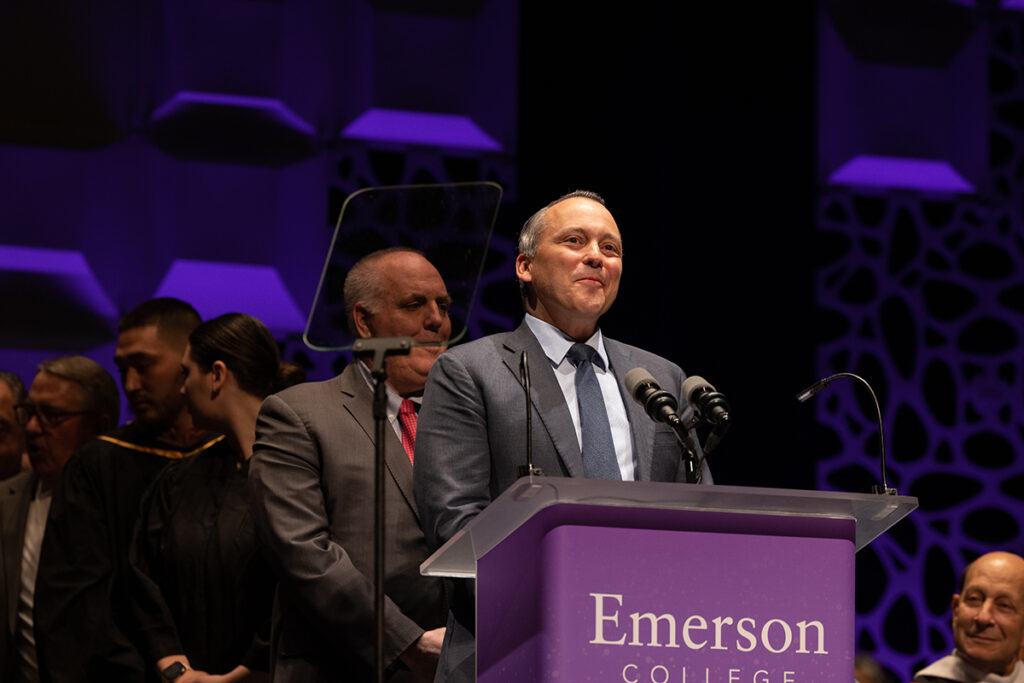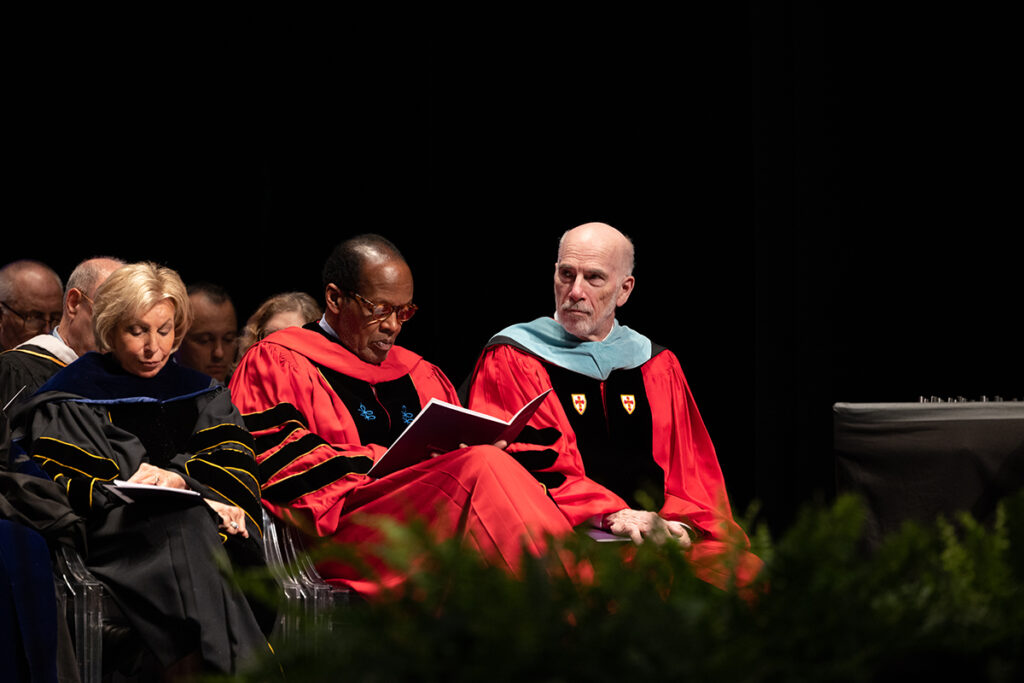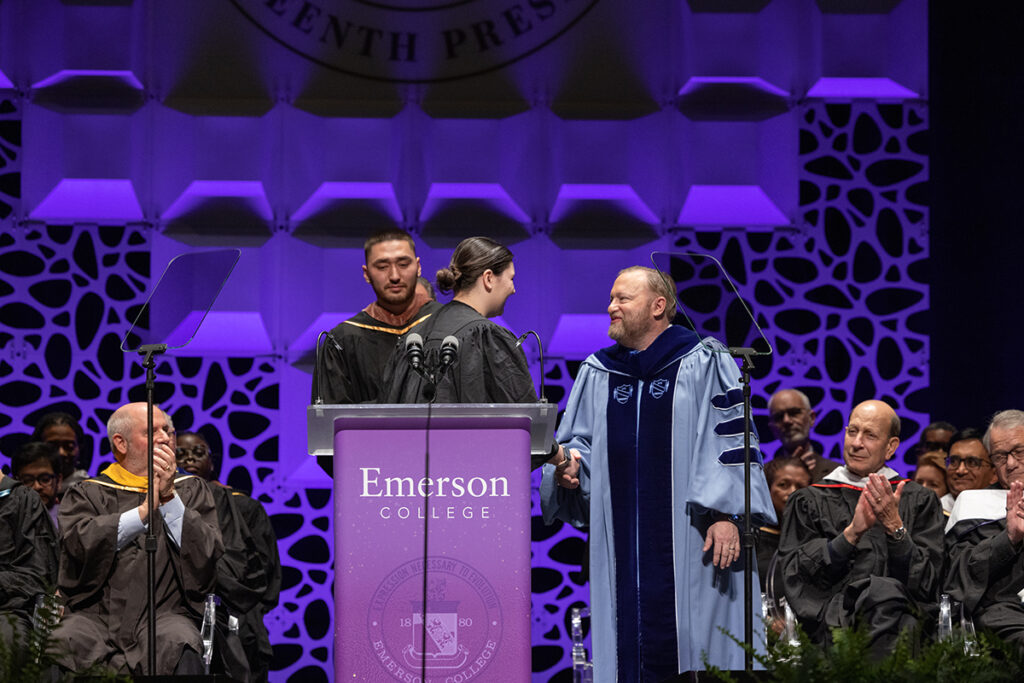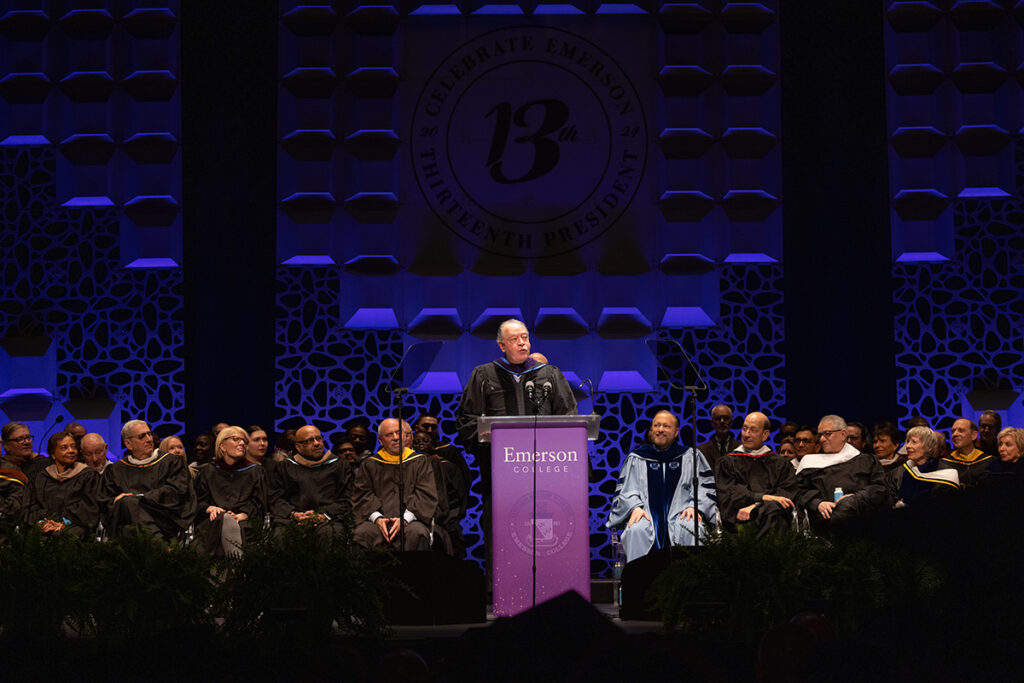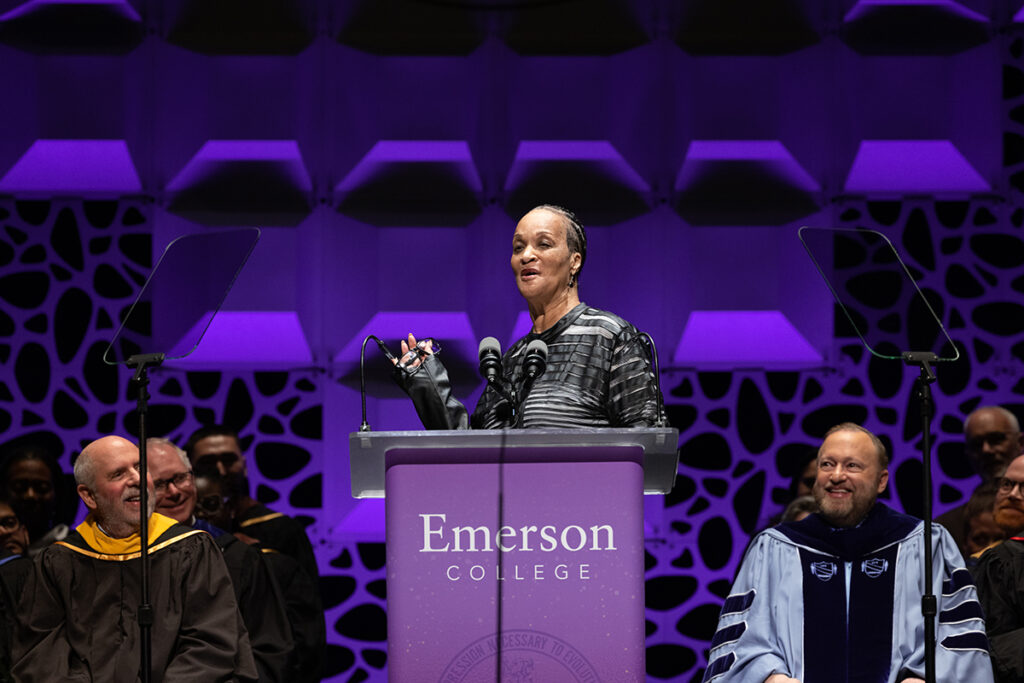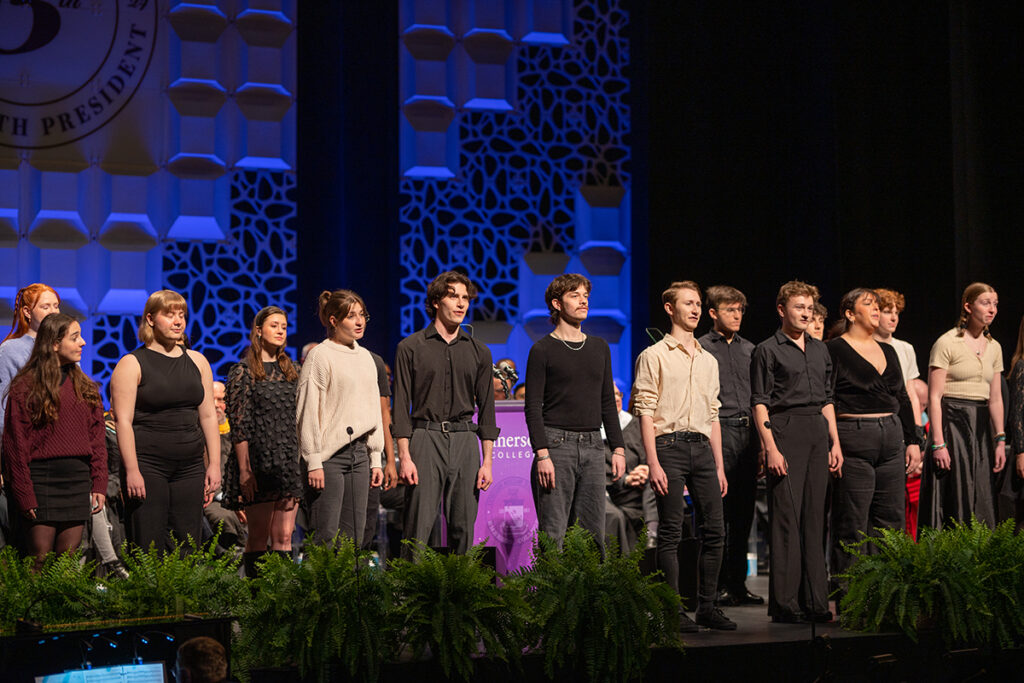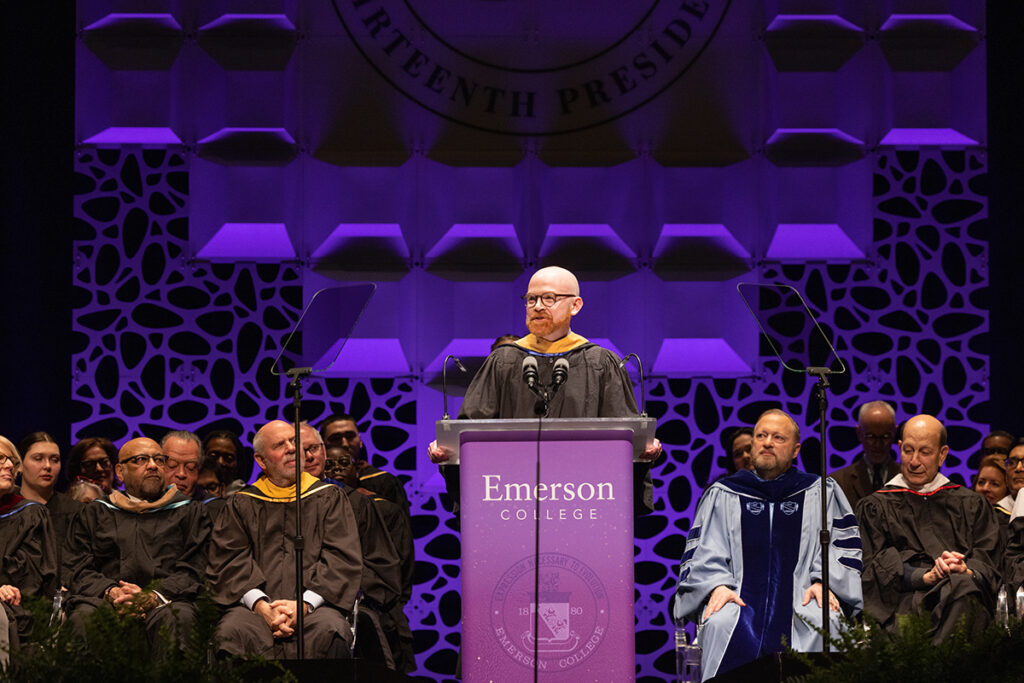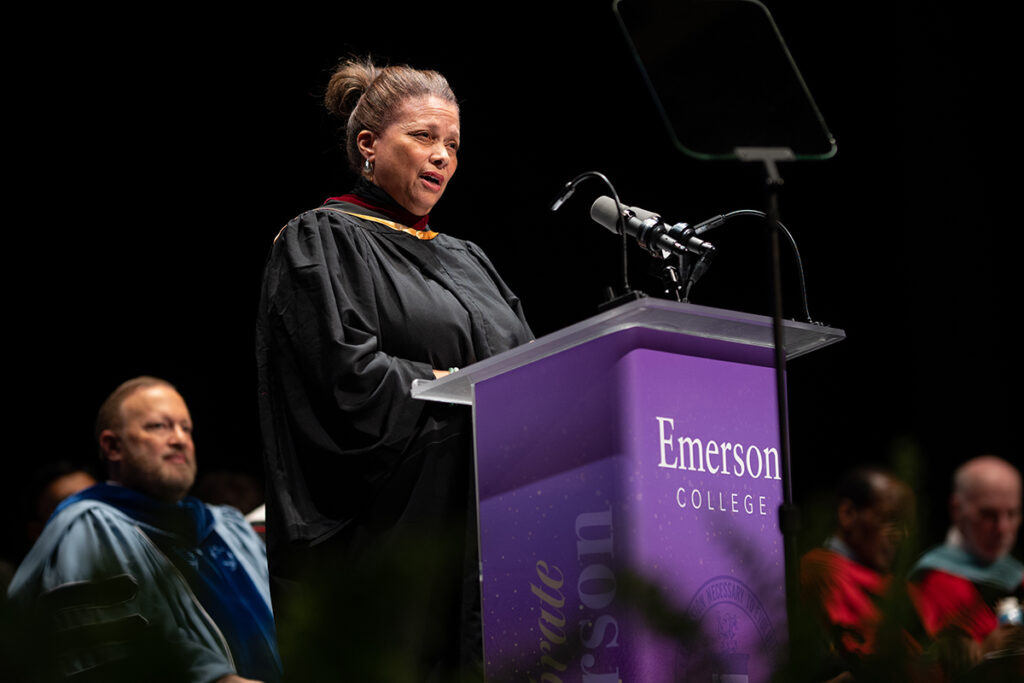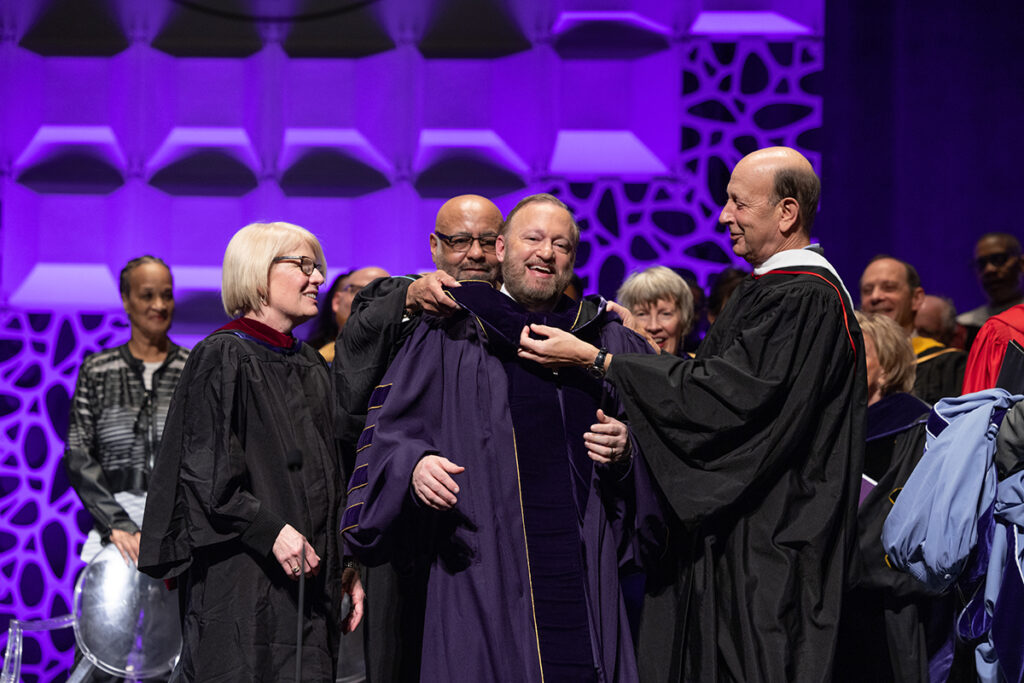Bernhardt: ‘More Than Ever, the World Needs Emersonians’
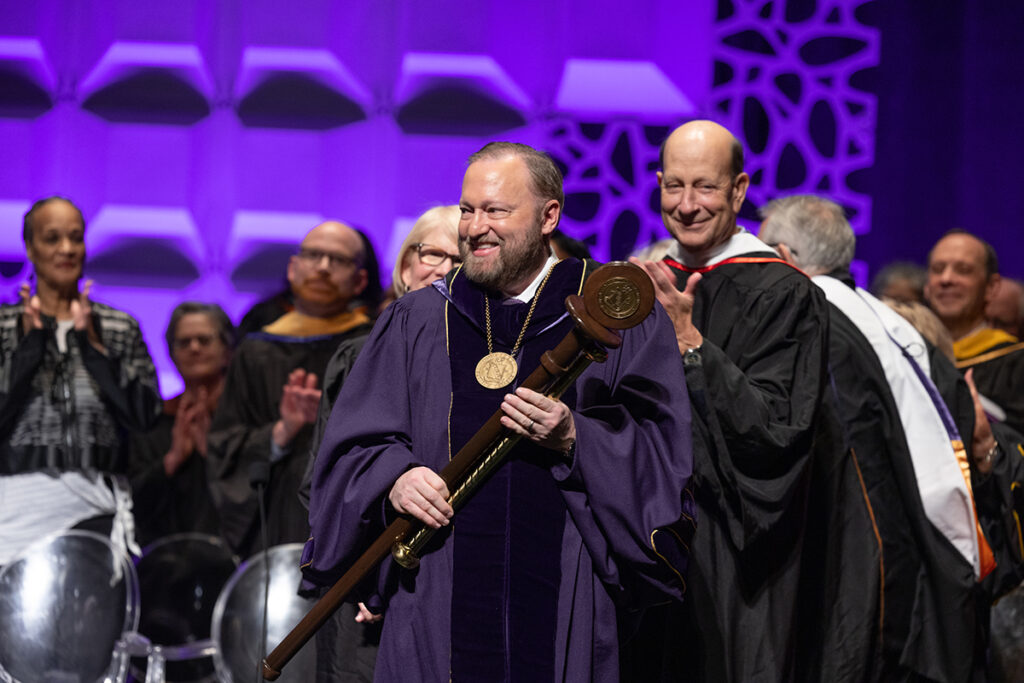
Dr. Jay Bernhardt, newly sporting the regalia and medallions of his office as president of Emerson College, looked out at the Emersonians and guests assembled in the Cutler Majestic Theatre for his Investiture ceremony on Friday, March 22, and told them he felt like he had found a home.
“I’ve heard countless students and alumni say that Emerson is the place where they found their people, their place, and their voice. And that’s precisely how I feel today,” Bernhardt said. After playing numerous roles in life, from a theatre kid, to a professor and administrator to a Deadhead, “I realize now that in terms of my beliefs, my priorities, and my values, I’ve always been Emersonian,” he said, choking up. “That’s why being here feels like coming home, and I’m so glad to be home.”
Bernhardt was officially inaugurated as Emerson’s 13th president Friday after nine months on the job and after two days of events and academic panels organized to mark the occasion and to “Celebrate Emerson.”
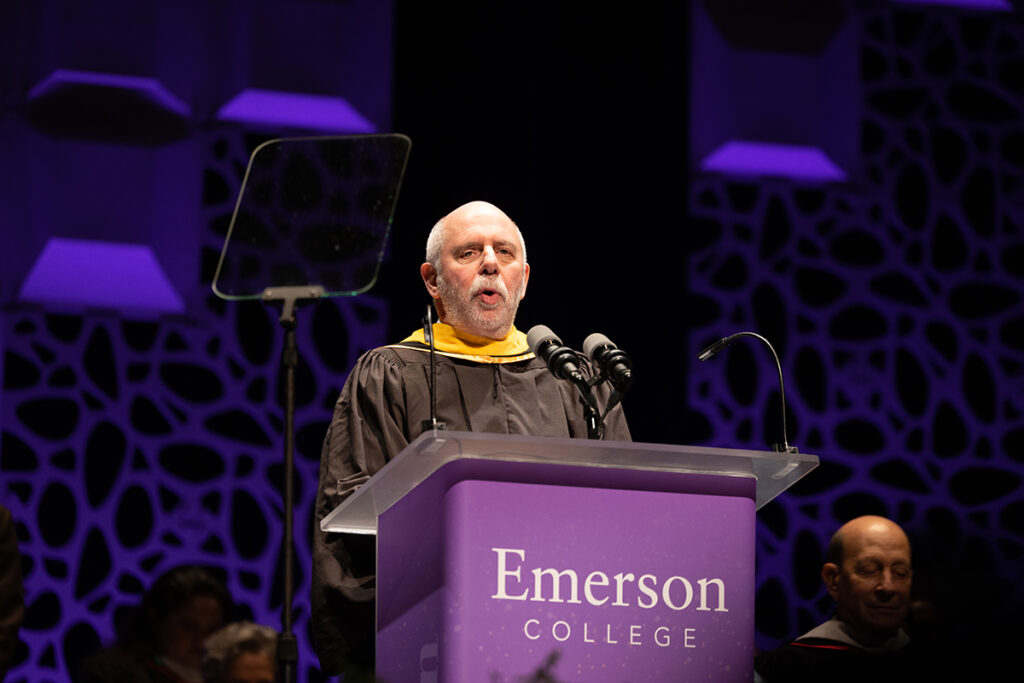
In introducing Bernhardt, Emerson Board of Trustees Chair Eric Alexander explained the board’s priorities and criteria in selecting a “transformational leader” who could “collaboratively lead a complex institution through a period of dramatic change,” and why they selected the health communication scholar and Dean of the Moody College of Communication at the University of Texas at Austin.
“Dr. Jay Michael Bernhardt made it crystal clear to us that being the president of Emerson College isn’t just a job for him,” Alexander said. “It is the culmination of the dream that he has been building toward over a long, illustrious career dedicated to making the world a better place through communication and the arts, and that dream is already becoming a reality for all of us.”
Bernhardt used his address to try to define the qualities of being “Emersonian.” He nodded to the College’s Southwick Oratory Recital tradition, which kicked off the inauguration celebration on Wednesday, to underline Emerson’s understanding that how something is communicated is as important as what is communicated. “Holding simultaneous beliefs and free expression while ensuring community respect — that, my friends, is Emersonian.”
He gave shout-outs to the “genre-bending” films and TV shows made by Emerson alums to demonstrate their “limitless creativity,” and highlighted the “fearlessness [that] leads Emersonians to pursue creative and scholarly works that can challenge the dominant narrative.”
Bernhardt paid tribute to the central role that comedy has played in the College’s story, including generations of Emerson-produced comedians and the nation’s first BFA in Comedic Arts. He also harkened back to his own youth, and TV shows from All in the Family to Friends to Will and Grace. “I grew up on content created and performed by Emersonians, and that shaped who I am today. Telling powerful stories to bring us together with humor and emotions, that is Emersonian as well,” he said.
And he noted Emersonians’ “generous spirit,” whether used to make others laugh, to serve their communities, and to better society. “To be sincere in our desire to lift people up, to embrace strategic partnerships, and to be generous with our time, expertise, and voice — that, too, is Emersonian.”
Looking ahead to Emerson’s 150th anniversary in 2030 and the Strategic Planning Process currently underway, Bernhardt urged those in the audience to go online and share their “big ideas” for taking the College into the next six years. While the full plan won’t be completed until Fall 2024, Bernhardt gave four priorities that he’s identified since arriving in June.
First, he said the College must prioritize innovation and address new technologies, such as artificial intelligence, that will impact every facet of what Emersonians do, teach, and learn. To that end, he established a presidential working group on generative AI that is “developing a roadmap” for strategically and responsibly engaging the technology. “We must do the planning and the work now to ensure that Emersonians can continue to lead in this rapidly changing world.”
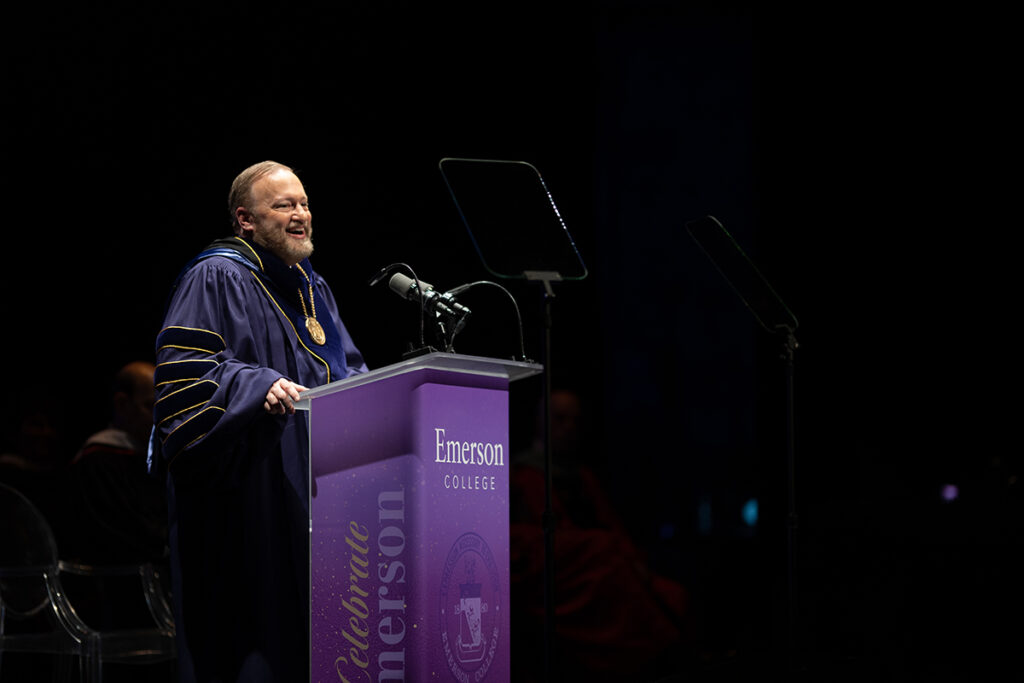
Emerson needs to continue to strengthen partnerships and build its reputation here in Boston, and around the world, through its campuses in Los Angeles and the Netherlands, and its programs and partnerships abroad. “We must continue building bridges for Emersonians to engage around the country and the world, while attracting more students and partners from more places here to Boston to make their own mark on the Emerson story.
The College “must model our values, including our longtime commitments to equity, social justice, sustainability, and our deep beliefs in interdisciplinarity,” he said, by harnessing departments such as the Social Justice Collaborative and Internationalization & Equity; utilizing programs like the Teach-Ins on Race and Sustainability, and building on interdisciplinary programs such as the Business of Creative Enterprises and Comedic Arts majors, and the Marlboro Institute’s Interdisciplinary Studies major.
Finally, he said, Emerson has to expand fundraising and develop new revenue streams in order to bolster financial aid. “We must attract and retain the most creative, talented, and diverse students to our college for years to come, and to do that, we must significantly address the issue of access and affordability.”
Bernhardt said he didn’t come to Emerson to change “who we are,” but to help Emersonians become “even more of who we are.”
“The world needs people who understand the power and nuance of language and compassionately speak about justice in a way that will make people hear and listen, along with people who use creativity and courage to overcome past, present and future injustices,” Bernhardt said. “So now, more than ever, the world needs Emersonians.”
Categories
